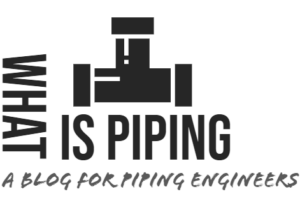Gas processing plants play a critical role in the oil and gas industry, transforming raw natural gas into marketable products such as methane, ethane, propane, and natural gas liquids (NGLs). However, these plants often face challenges such as fluctuating feed compositions, energy inefficiencies, and operational bottlenecks. Process optimization is the key to addressing these challenges, improving plant performance, and maximizing profitability. This article explores advanced strategies for optimizing gas processing plants, with a focus on key unit operations and technologies.
Key Challenges in Gas Processing
- Variable Feed Composition: Natural gas feedstocks can vary significantly in terms of composition, pressure, and temperature, making it difficult to maintain consistent product quality.
- Energy Intensity: Gas processing plants are energy-intensive, with significant energy consumption in compression, refrigeration, and separation processes.
- Operational Bottlenecks: Inefficiencies in equipment or processes can lead to reduced throughput, higher operating costs, and increased downtime.
- Environmental Compliance: Stricter regulations on emissions and waste management require plants to adopt cleaner and more efficient technologies.
Strategies for Process Optimization
1. Advanced Process Simulation and Modeling
- Objective: Predict plant performance under varying conditions and identify optimization opportunities.
- Tools: Software like Aspen HYSYS, PRO/II, or UniSim can simulate entire gas processing plants, including separation, compression, and refrigeration units.
- Application: Use dynamic simulation to test different operating scenarios, such as changes in feed composition or flow rates, and optimize process parameters like pressure, temperature, and reflux ratios.
2. Optimizing Dehydration Systems
- Objective: Remove water vapor from natural gas to prevent hydrate formation and corrosion.
- Strategies:
- Optimize tri-ethylene glycol (TEG) circulation rates and contactor temperatures in glycol dehydration units.
- Use advanced regeneration techniques, such as stripping gas or vacuum distillation, to improve TEG purity and reduce energy consumption.
- Outcome: Enhanced dehydration efficiency and reduced operational costs.
3. Enhancing NGL Recovery
- Objective: Maximize the recovery of valuable NGLs (ethane, propane, butane) from natural gas.
- Strategies:
- Optimize the operation of cryogenic turboexpander plants by adjusting expander inlet temperatures and pressures.
- Use advanced heat integration techniques to improve the efficiency of heat exchangers and reduce refrigeration loads.
- Outcome: Increased NGL recovery rates and higher product revenues.
4. Energy Efficiency Improvements
- Objective: Reduce energy consumption in compression, refrigeration, and separation processes.
- Strategies:
- Retrofit compressors with variable frequency drives (VFDs) to match load requirements and reduce energy usage.
- Implement waste heat recovery systems, such as Organic Rankine Cycle (ORC) units, to generate power from waste heat.
- Optimize heat exchanger networks using pinch analysis to minimize energy losses.
- Outcome: Lower operating costs and reduced carbon footprint.
5. Advanced Process Control (APC)
- Objective: Automate and optimize plant operations in real-time.
- Strategies:
- Use APC systems to control key process variables, such as column pressures, temperatures, and reflux rates.
- Implement predictive maintenance systems to monitor equipment health and prevent unplanned downtime.
- Outcome: Improved process stability, higher throughput, and reduced operational risks.
6. Addressing Operational Bottlenecks
- Objective: Identify and resolve inefficiencies in equipment or processes.
- Strategies:
- Conduct regular performance audits to identify bottlenecks in compressors, heat exchangers, or distillation columns.
- Upgrade or replace outdated equipment with more efficient technologies.
- Optimize maintenance schedules to minimize downtime and maximize equipment availability.
- Outcome: Increased plant capacity and reduced operational costs.
Case Study: Optimizing a Gas Processing Plant in the Middle East
A gas processing plant in the Middle East faced challenges with low NGL recovery rates and high energy consumption. The following optimization strategies were implemented:
- Process Simulation: A detailed simulation model was developed to identify inefficiencies in the cryogenic turboexpander plant.
- Heat Integration: The heat exchanger network was optimized using pinch analysis, reducing refrigeration loads by 15%.
- Advanced Control: An APC system was installed to optimize column pressures and temperatures, improving NGL recovery by 5%.
- Energy Efficiency: Compressors were retrofitted with VFDs, reducing energy consumption by 10%.
Results:
- 20% increase in NGL recovery.
- 15% reduction in energy consumption.
- Payback period of less than 2 years.
Environmental and Economic Benefits
- Reduced Emissions: Energy efficiency improvements and waste heat recovery systems lower greenhouse gas emissions.
- Cost Savings: Optimized processes reduce energy consumption, maintenance costs, and downtime.
- Increased Revenue: Higher NGL recovery rates and improved product quality generate additional revenue.
- Regulatory Compliance: Advanced technologies and optimized processes help plants meet stringent environmental regulations.
Conclusion
Process optimization is a powerful tool for enhancing the performance and profitability of gas processing plants. By leveraging advanced simulation tools, energy efficiency improvements, and advanced process control systems, operators can overcome challenges, reduce costs, and maximize product recovery. As the industry continues to evolve, process optimization will remain a critical focus area for achieving operational excellence and sustainability.
